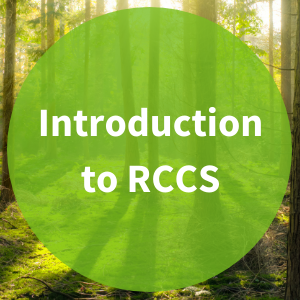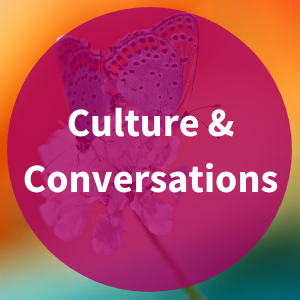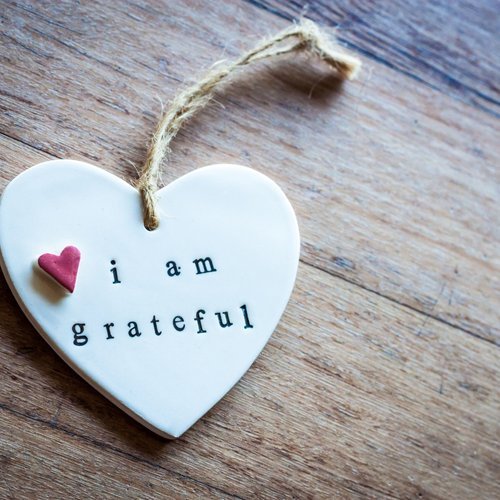Our Clinical Approach
We believe recovery is possible — and we have created a system to help people regain their health, hopes, dreams, and life roles.

98É«»¨ĚĂ was founded on the belief that rehabilitation and recovery from serious mental illness are possible. We have consolidated our learning and experience into the Recovery-Centered Clinical System (RCCS), a richly personal, holistic, and comprehensive approach to recovery.
The system was developed internally over 20 years with extensive involvement from 98É«»¨ĚĂ's clinical and operational staff at all levels. The RCCS was also deeply shaped by direct input and collaboration with our clients and peer employees. 98É«»¨ĚĂ has provided training and consultation on our RCCS with selected customers, including the State of Oregon.
The RCCS is based on a belief that recovery can happen, but it does not cause recovery to happen. Instead, the RCCS strives to create an environment that supports recovery. It does this by concentrating on two distinct but complementary areas: culture and conversations.
Culture is focused on the recovery environment. The recovery environment is created collaboratively by staff and the individuals served, and by the interpersonal relationships that are developed to foster a supportive program setting. At 98É«»¨ĚĂ, culture work focuses on five areas of awareness: uniqueness, power, judgment, motivation, and respect. We believe that when we are mindful of these areas of awareness and thoughtful about our words and actions, we can cultivate an environment where recovery can grow and thrive.
Conversations are focused on the individual. Conversations encompass five components: identity, hope, choice, harm, and connection. We believe that when people are asked about themselves and these important topics, with curiosity and non-judgment, that it creates space and opportunity for people to awaken and enliven their recovery process.
Learn More
98É«»¨ĚĂ's Recovery-Centered Measures (RCM) Tool
98É«»¨ĚĂ created a research-validated tool to support our RCCS. This tool, Recovery-Centered Measures (RCM), enables 98É«»¨ĚĂ programs to measure their recovery-centered culture. Staff as well as individuals served give feedback on how the culture impacts them and the services being delivered. Results are used to identify and grow strengths within a program as well as to provide an opportunity for cultural improvement initiatives.
which was published in The Journal of Behavioral Health Services and Research.
More Information on 98É«»¨ĚĂ's RCCS:
If you'd like more information about our RCCS, RCM Tool, or related presentations and materials, please email: RCCSusage@telecarecorp.com.
RCCS Tidbit of the Month:
This month’s RCCS Tidbit offers ideas for targeting RCCS interventions to address the unique recovery challenges of older adults.
In this month’s RCCS Tidbit, we provide ideas for being kind to ourselves, allowing us to extend kindness to others. Let’s start 2025 with kindness and remember we have far more in common than our differences.
In this month’s RCCS Tidbit, we provide ideas for being kind to ourselves, allowing us to extend kindness to others. Let’s start 2025 with kindness and remember we have far more in common than our differences.
In this month's RCCS Tidbit, we offer suggestions on how to use a gratitude journal to practice gratitude and reverse the harmful effects that life's challenges and traumas have made on our well-being.
In this month’s RCCS Tidbit, we help clients discover and exercise their authentic power—offering them options and choices, even small ones, to help them reclaim control over their lives.
In this month’s RCCS Tidbit, we highlight an RCCS Conversation Guide that program staff can use to help individuals identify their current strengths and steps to take to grow additional strengths for their future.
In this month’s RCCS Tidbit, we review the mindfulness skill “Stop, Breathe, and Think,” along with other strategies for managing emotions that may obscure our wisdom and ability to stay on the middle path – our wise mind.
In this month's RCCS Tidbit, we offer staff ideas on supporting clients and members on the recovery journey as they heal from past hurts and traumas.
In this month's RCCS Tidbit, we explore the concept of "grieving impairments" and discuss practical ways to overcome them to provide meaningful support to those facing grief and loss.
In this month's RCCS Tidbit, we offer ideas on setting boundaries with others that can help you maintain a balance between assuming the best of others while being transparent about your needs and safety.
This Women’s History Month, we wanted to focus on the theme: Providing Healing and Promoting Hope. This pandemic has had an extraordinary impact on women’s health and wellness — primarily on women of color and the LGBTQIA+ community. This month, we wanted to share some history and resources to help support wellness for anyone who identifies as a woman.
In this month’s RCCS Tidbit, we share ways of bringing joy to the soul and better ways of understanding of how laughter affects human physiology.
A Component of Reducing Harm – One of the Five Conversations of the RCCS. As psychologists continue to explore the healing impacts on our brains from the practice of gratitude, one thing is clear: Gratitude offers extensive benefits of well-being.
In meeting with and listening to staff, clients, and members, we hear that many individuals at 98É«»¨ĚĂ programs seem to be alone in life. Making and building strong, supportive connections takes time. Past hurts and trauma can make it hard for clients and members to engage and trust others. Individuals need to re-learn skills and practice. In the video to the right, one 98É«»¨ĚĂ HOMES member illustrates the power of connection through their story.
Suicidal thoughts, much like mental health conditions, can affect anyone regardless of age, gender or background. In fact, suicide is often the result of an untreated mental health condition. Suicidal thoughts, although common, should not be considered normal and often indicate more serious issues.
In meeting with and listening to staff, clients, and members, we hear that many individuals at 98É«»¨ĚĂ programs seem to be alone in life. Making and building strong, supportive connections takes time. Past hurts and trauma can make it hard for clients and members to engage and trust others. Individuals need to re-learn skills and practice. In the video to the right, one 98É«»¨ĚĂ HOMES member illustrates the power of connection through their story.
Do you remember when you were growing up being taught the phrase, “Sticks and stones may break my bones, but words will never hurt me”? We were taught that so we could remain strong when we were bullied or disrespected by others. However, you might also remember that while you weren’t physically harmed by another person’s words, their hurtful language left an invisible wound that sometimes took longer to heal than a physical wound might have.
In this month’s RCCS Tidbit of the Month, we pause to recognize and celebrate individual uniqueness. In the RCCS, we highlight uniqueness as a part of our recovery culture. We strive to see people as unique individuals and be aware not to see people in terms of categories or labels. We choose to listen and ask questions and not assume. Finally, we value the diversity of the individuals we work with and serve. These values and behaviors are important to all people and communities.
Through the RCCS, we strive to become more aware of our judgments and bias. Becoming more aware requires us to give others permission to have sensitive conversations with us and give us respectful feedback. To increase more awareness of your own unconscious bias towards diverse people, explore thefrom Harvard University.
What a year these past 525,600 minutes have been for us, our communities, for 98É«»¨ĚĂ, and for our country. We have lost more than one person a minute due to the pandemic, we’ve experienced difficult social and political times throughout, and we’re still waiting for the country to recover.
In this month’s RCCS Tidbit, we focus on skill building towards interdependence. We provide two RCCS Conversation tools for you to use to explore the development and maintenance of respectful boundaries with yourself and others.
In this month’s RCCS Tidbit, we offer a RCCS Conversation Guide to help you identify areas in your life you feel like you have authentic power— as well as areas in their life where you feel you have little control. Find steps to address these areas and more inside this post!
As we begin the new year, what do you hope for in 2021? Use the practice inside this post to identify things that you envision for your future and explore your imagination.
The practice of gratitude is important in maintaining our resilience and our ability to manage extreme emotions. Learn the many benefits of gratitude and use the prompts inside this post to start a regular gratitude journal.
In this month’s RCCS Tidbit, we focus on change and the stages of change. We explore ways of supporting others as they think about and prepare for change. Read more about finding and moving through the stages of change inside this post.
In this month’s RCCS Tidbit we share tips on getting in touch with and deepening our awareness around empathy.
This month’s RCCS Tidbit helps us to reveal our strengths, identify others we may wish to develop, and think about how we might use strength to help others as we travel through this life transition together.
Human beings are social animals. Our brains are structured to be in a relationship with others. Having people or other important connections in our lives creates opportunities and enhances our recovery.
How can we reduce our judgments of others and strive towards a judgment-free culture? To decrease judgment, we should strive to increase curiosity. Being curious demonstrates a willingness to better understand others and give others permission to know and understand us in a deeper way.

































